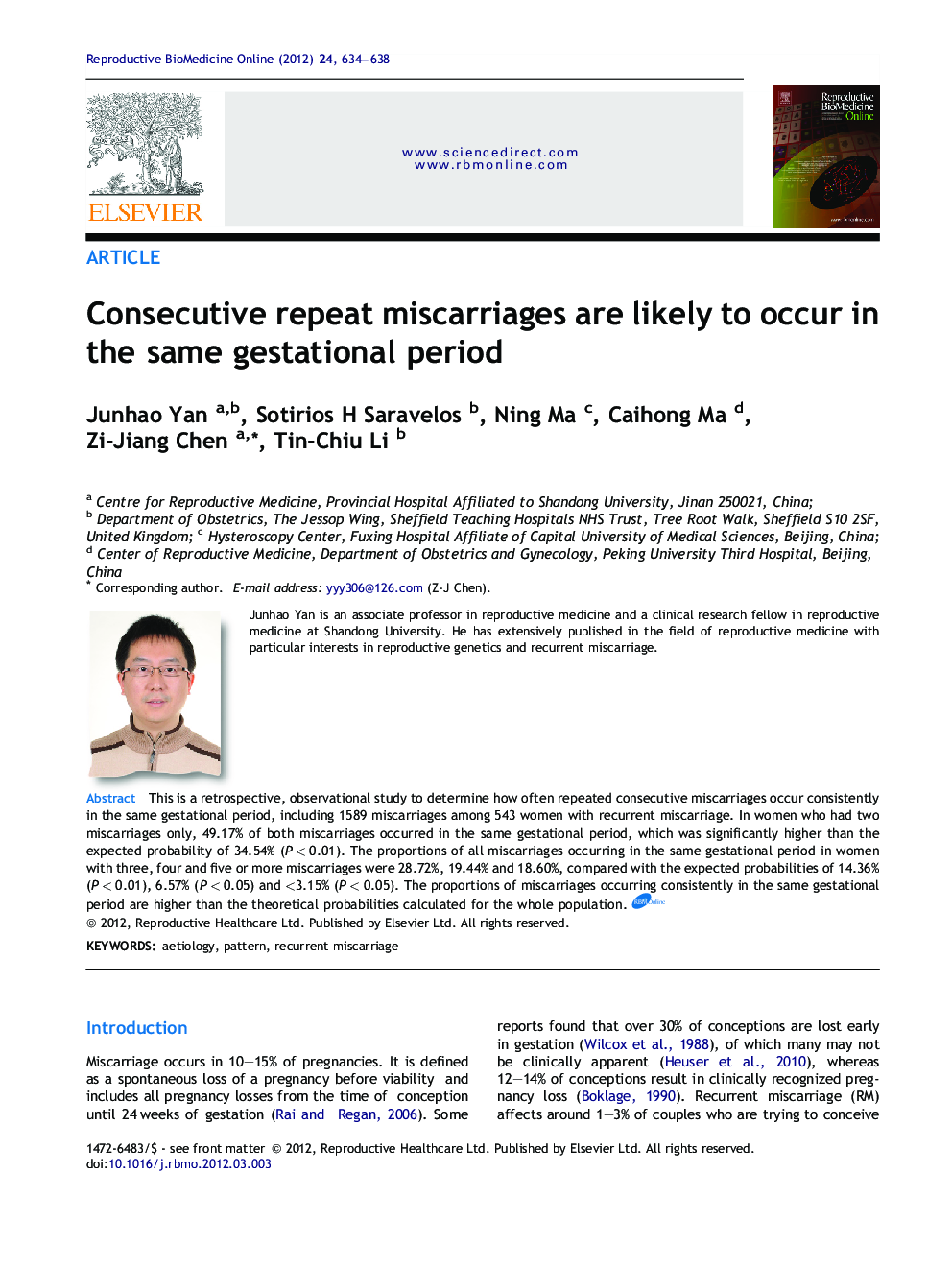| Article ID | Journal | Published Year | Pages | File Type |
|---|---|---|---|---|
| 3970824 | Reproductive BioMedicine Online | 2012 | 5 Pages |
This is a retrospective, observational study to determine how often repeated consecutive miscarriages occur consistently in the same gestational period, including 1589 miscarriages among 543 women with recurrent miscarriage. In women who had two miscarriages only, 49.17% of both miscarriages occurred in the same gestational period, which was significantly higher than the expected probability of 34.54% (P < 0.01). The proportions of all miscarriages occurring in the same gestational period in women with three, four and five or more miscarriages were 28.72%, 19.44% and 18.60%, compared with the expected probabilities of 14.36% (P < 0.01), 6.57% (P < 0.05) and <3.15% (P < 0.05). The proportions of miscarriages occurring consistently in the same gestational period are higher than the theoretical probabilities calculated for the whole population.To determine how often repeated consecutive miscarriages occur consistently in the same gestational period, we did a retrospective, observational study including 1589 miscarriages among 543 women with recurrent miscarriage. It was found that in women who had two miscarriages only, 49.17% of both miscarriages occurred in the same gestational period, which was significantly higher than the expected probability of 34.54%. The proportions of all miscarriages occurring in the same gestational period in women with three, four or five or more miscarriages were 28.72%, 19.44% and 18.60%, compared with the expected probabilities of 14.36%, 6.57% and <3.15%. So we draw the conclusion that the proportions of the miscarriages occurring consistently in the same gestational period are higher than the theoretical probabilities calculated for the whole population.
